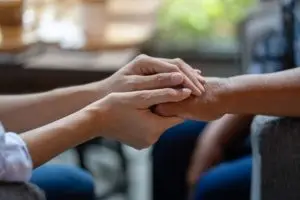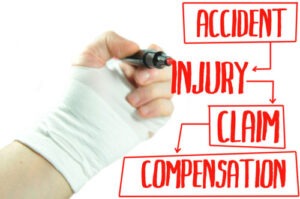Elderly Abuse
A Florida woman was recently arrested on charges of aggravated abuse of an elderly person and neglect of an elderly person following the death of a 74-year-old man under her guardianship. Investigators with the Florida Department of Law Enforcement stated that the woman overrode the man’s wishes for life-sustaining care, including resuscitation and receiving nutrition through a feeding tube.
The man had expressed on multiple occasions that it was his wish to live and to continue receiving nutrition. However, the guardian obtained an order to cap his feeding tube and to cease all life-saving care. The man died four days after his feeding tube was removed.
When you think about elder abuse, the withholding of life-sustaining measures is likely not the first thing that comes to mind. Elder abuse and neglect come in many forms, however, and the abuse of older people is a lot more common in the United States than you might think. Read on for more information about what elder abuse is and its widespread prevalence. If you or your loved one has been the victim of elder abuse, an experienced personal injury attorney at Viles & Beckman can provide information about the legal process of obtaining compensation for the injuries experienced and the expenses incurred.


Expect More, Receive More: Legal Support That Feels Like Family
What Is Elder Abuse, and What Is Elder Neglect?
The Administration for Community Living defines elder abuse as “any knowing, intentional, or negligent act by a caregiver or any other person that causes harm or a serious risk of harm to a vulnerable adult.” Approximately 60 percent of the perpetrators in elder abuse cases are the spouse or adult children of the individual who has been abused.
The different forms of elder abuse include:
- Physical abuse: Inflicting physical pain or injury upon an older person, such as hitting, biting, scratching, or slapping, as well as shoving, kicking, or the use of physical or chemical restraints.
- Sexual abuse: Non-consensual sex acts of any kind that are performed on the older person, which may or may not involve touching. Sexual abuse may also include forcing the person to view pornography.
- Neglect: The failure of a caregiver to provide food, water, health care, shelter, or protection for the older person.
- Exploitation: The illegal taking or use of funds, property, or assets belonging to the older person. Exploitation may also include depriving the elderly person of access to personal benefits, resources, or belongings. Exploitation may involve the improper use of guardianship or power of attorney, as well as the use of coercion or deception, to gain access to money or property belonging to the elderly person.
- Emotional abuse: Causing the older person to feel mental pain, anguish, or distress through verbal or non-verbal acts. Emotional abuse may include belittling the older person, threatening him or her, or using intimidation to control what the older person does. Emotional abuse may also involve isolating the elderly individual from others.
- Abandonment: Desertion of a vulnerable elder by an individual who is supposed to be providing care.
Elders who have been abused have a 300 percent higher likelihood of early death than those who have not been abused. Up to $36.5 billion a year is lost due to financial abuse and exploitation of older Americans. Unfortunately, given the cognitive and physical frailty of the victims of this type of crime, it’s often difficult to determine if abuse is taking place.
However, these warning signs may indicate abuse:
- Physical signs of abuse: Welts, bruises, broken bones, burns, abrasions, and other unexplained injuries. Persistent physical pain and soreness, increased susceptibility to new illnesses, including sexually transmitted diseases, and worsening of pre-existing physical ailments. Sleep disturbances may also indicate abuse, as well as the exhibition of new behaviors, such as rocking.
- Psychological signs of abuse: Increased levels of anxiety or distress, unusual depression, self-imposed isolation from activities the person used to enjoy participating in, frequent arguments between the caregiver and the older person in which the caregiver belittles or threatens the older person, fear at being left alone with a caregiver or nursing home employee.
- Signs of neglect: Lack of proper nutrition or hydration, poor hygiene, bedsores, and lack of needed medical care.
- Signs of financial abuse or exploitation: Sudden, unexplained changes in the person’s bank balance, loss of personal items, and new names added to the signature card for bank accounts.
How Many Older People Experience Elder Abuse?
As reported by the National Council on Aging, approximately one in 10 Americans over the age of 60 has been subjected to elder abuse or neglect. Studies have produced estimates as high as five million elders suffering from abuse or neglect each year. However, it is estimated that the number of elder abuse cases that are reported to authorities is around one in 14.
Some of the reasons these cases are unreported include:
- The inability of an older person who may have cognitive decline or other medical issues to accurately explain what is happening to them.
- The abuse victim’s fear of upsetting his or her caretaker, getting a loved one in trouble with the law, or total dependence on the abuser.
- A lack of formal definition as to what constitutes abuse or neglect of an older person.
Why Does Elder Abuse Occur?
According to information from the Center for Disease Control and Prevention (CDC), a mix of individual, relational, community, and societal factors generally leads to elder abuse. Those factors include:
- Individual factors: Either the caregiver or the older person is suffering from mental illness or alcohol abuse, the caregiver was poorly trained or inadequately prepared for the responsibility of providing care to an older person, the caregiver has hostility toward the older person, the caregiver has inadequate coping skills, or the caregiver may have been abused as a child.
- Relational factors: The elder is vulnerable and has a high level of dependence on his or her caregiver, the elder has past experience of disruptive behavior, and both the caregiver and the elderly individual suffer a lack of social or formal support from others.
- Community factors: Formal services, such as respite care that allows the caregiver to take a break from caregiving, are either inaccessible or unavailable.
- Societal factors: There is an acceptance of aggressive behavior, and people are encouraged to stay silent about their pain and suffering. Family members are often left to care for aging loved ones without support, and there are often negative beliefs about aging and older people. Health care personnel, guardians, and other agents are given greater freedom in routine care and decision-making regarding the elderly individual.
What Laws Are in Place to Protect Elderly People from Abuse?
The federal government, as well as the governments of all 50 states in the U.S., have enacted laws intended to protect vulnerable adults from all types of abuse. Florida’s laws pertaining to the protection of vulnerable adults can be found within the state’s Adult Protective Services Act. The intent of the act, as stated in the law, is to provide protection and correction of abuse, neglect, and exploitation of adults who are vulnerable, due to age or disability, through social services and criminal investigations.
Provisions of the law include:
- The formation of a central abuse hotline that is accessible through a toll-free number where individuals can report known or suspected abuse, neglect, or exploitation of a vulnerable adult. Upon receiving the report, those operating the central abuse hotline must determine whether the adult is in immediate need of help, or—if the situation doesn’t require immediate action—must forward the report to investigators within 24 hours. The abuse hotline number is 1-800-96-ABUSE. Concerned individuals can also make reports online here.
- Mandatory reporting requirements for certain individuals, such as physicians, medical examiners, and other health care personnel or providers of mental health services, spiritual healers, nursing home staff, law enforcement officers, criminal justice employees, Florida advocacy council members, long-term ombudsman council members, and financial institutions. Individuals in these positions are required to report any known or suspected abuse of a vulnerable adult. Mandatory reporters are required to make their reports immediately. If possible, they must include the following information in their reports: name, age, race, sex, and location of the victim; the name, address, and phone number of the victim’s family members; the name, address, and phone number of the alleged perpetrator; the name, address, and phone number of the victim’s caregiver, if different than the perpetrator; the name, address, and phone number of the reporting party; a description of physical or psychological injuries that were sustained; and any actions taken by the reporting party, including contacting a local law enforcement agency.
- Nursing homes and other facilities that provide services to vulnerable adults must establish policies and procedures related to the required reporting of known or suspected abuse, neglect, or exploitation of a vulnerable adult.
- Immunity from civil and criminal proceedings of a reporting party who made his or her report in good faith, and immunity from reprisal or discharge from a nursing facility if a resident self-reports abuse, neglect, or exploitation by any staff member at the facility.
- The requirement that investigations of all reported known or suspected abuse, neglect, or exploitation will begin within 24 hours of the report.
- The requirement of law enforcement assistance when the caregiver refuses to allow the investigation to take place or attempts to interfere with the investigation.
- Confidentiality of all reporting parties and records produced during the reporting or investigation of adult abuse, neglect, or exploitation, except to the investigators, law enforcement, and the court, as necessary.
- Established criminal penalties for those who do not report known or suspected abuse when legally required or who violate the confidentiality of the report, as well as those who knowingly file a false report.
- The ability of the vulnerable adult, the family of the vulnerable adult, or an organization acting on behalf of the vulnerable adult to file a civil lawsuit seeking the recovery of damages resulting from abuse, neglect, or exploitation. If the plaintiff is over the age of 65, he or she can file a motion to advance the case on the docket so that the case can go before the judge quickly.
Elder abuse, neglect, and exploitation are not only a problem for older adults living at home with family members. Those who reside in long-term nursing home facilities are also at risk. The Center for Medicare/Medicaid Services requires state surveyors to perform regular inspections of nursing facilities to ensure that the residents are free from abuse, treated with dignity and respect, granted the right to make decisions for themselves in matters such as choosing a physician, determining which activities to participate in, deciding when to get up in the morning and go to bed at night.
Nursing home residents also have the right to participate in the development of their own care plans, to have their wishes regarding care honored when possible, and to be informed of their rights and responsibilities upon admission to their facilities. Residents have the right to obtain written notice of room changes, roommate changes, and transfer to the hospital or another facility.
Facilities who violate the rights of nursing home residents or who place them at risk of harm by failing to provide proper medical care, nutrition, or pharmacy services may incur penalties for these violations. A facility’s three most current state inspection reports must be on-hand and available for those who request to see the information contained within those reports.
Let an Elder Abuse Lawyer Help
If your loved one was abused, neglected, or exploited at a nursing home or by a hired caregiver in the state, an experienced elder abuse attorney can discuss your legal options and explain the process of obtaining compensation through a personal injury lawsuit.






